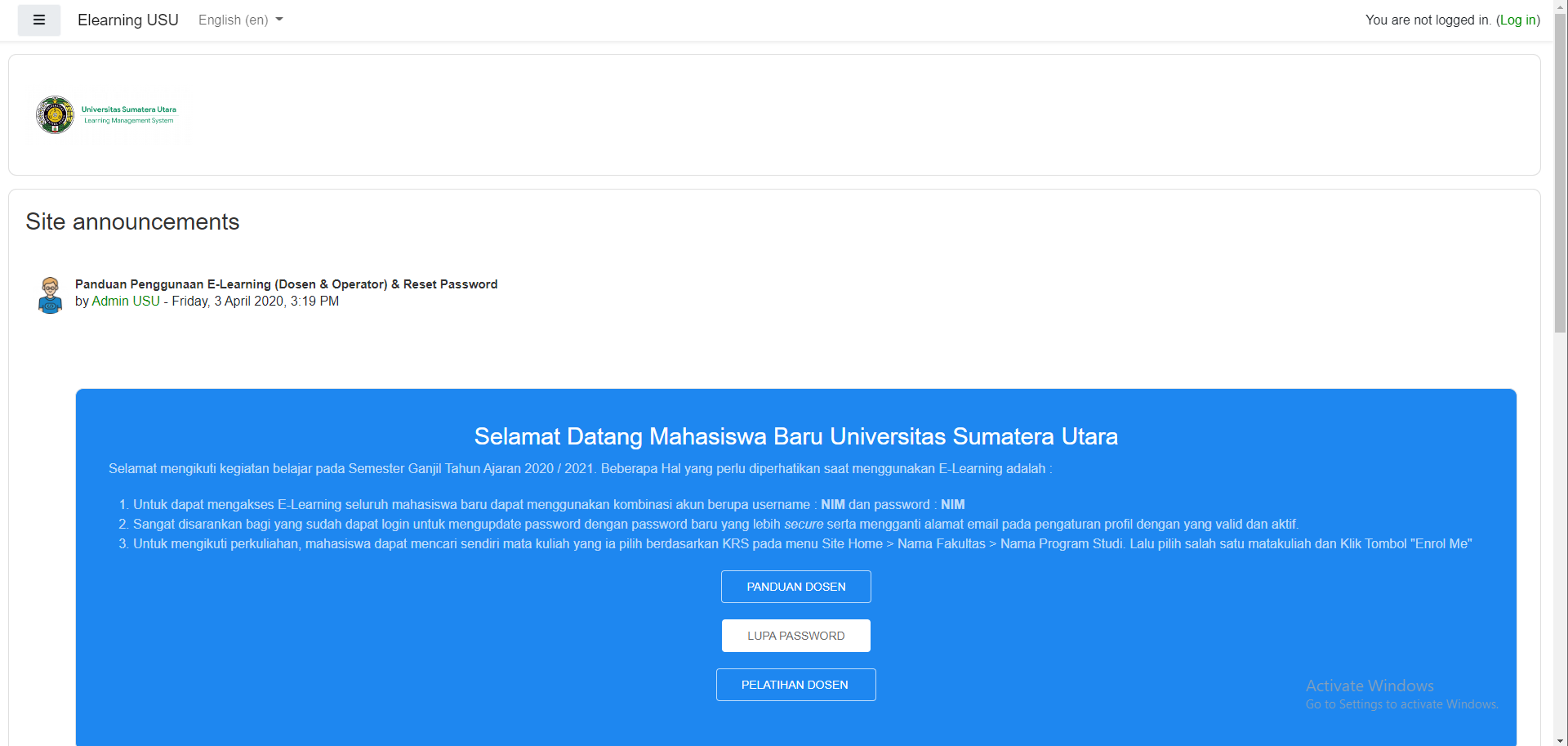To increase the Civitas Academica's concern for waste reduction, USU held an appeal in the form of posters on waste sorting, reducing the use of plastic bags and single-use plastic drink bottles and suggesting the use of tumblers and reusable straws, and bringing your own shopping bags. The provision of trash bins that separate organic, inorganic, and recycled plastic waste has been provided in the faculty building and USU's administrative bureau. Plastic waste in the form of bottles and plastic cups is collected at the Temporary Waste Shelter and then taken to a vendor for storing recycled materials (BOTOT) on Jalan Labu or to the Waste Bank in Selayang Subdistrict to be sold to a recycling factory. Likewise, paper and cardboard waste can still be accepted by vendors for recycling. Waste that cannot be recycled will be taken to the Final Disposal Site by the Medan City Cleaning Service.
In addition to composting which has been going on for several years, organic waste from household kitchens/canteens will be processed at USU's TPS using Black Soldier Fly larvae (maggot). Larger larvae can be used as fish food, and the larval living media can be dried into compost.
USU's concern in organizing a green campus that cares about the environment was strengthened by the issuance of the Chancellor's Regulation in October 2019 regarding the Implementation of the Green Campus Movement at the Universitas Sumatera Utara. This regulation was then followed by circulars in faculties and study programs to save energy, water, paper and plastic use, and waste management
Online learning using USU's E-Learning platform reduces paper usage by up to 100% in learning activities.
The existence of an information system and mobile application in the library and the provision of E-books greatly reduces the use of paper in activities in the library.
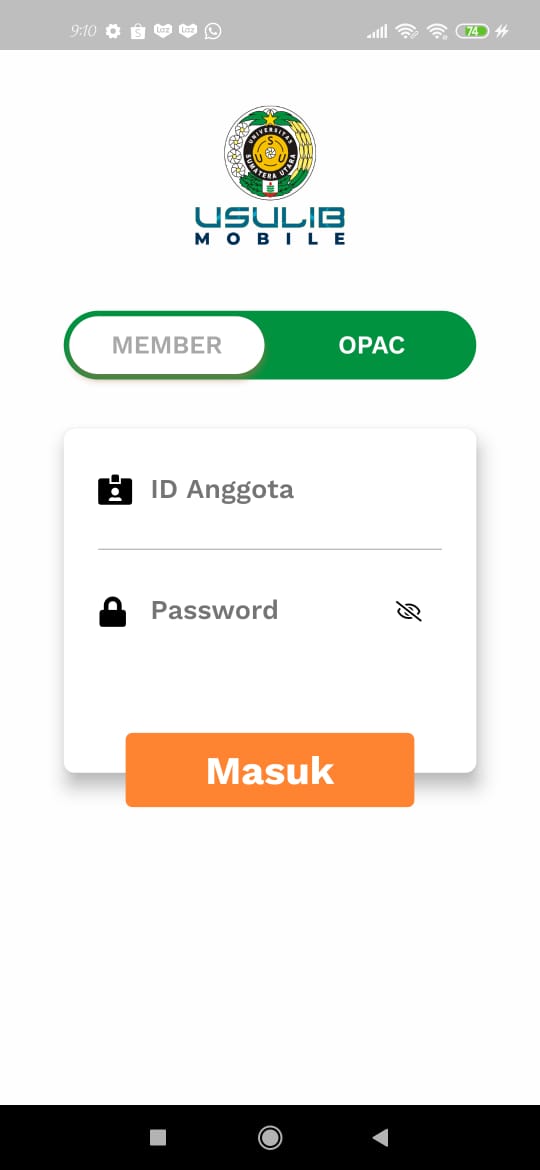
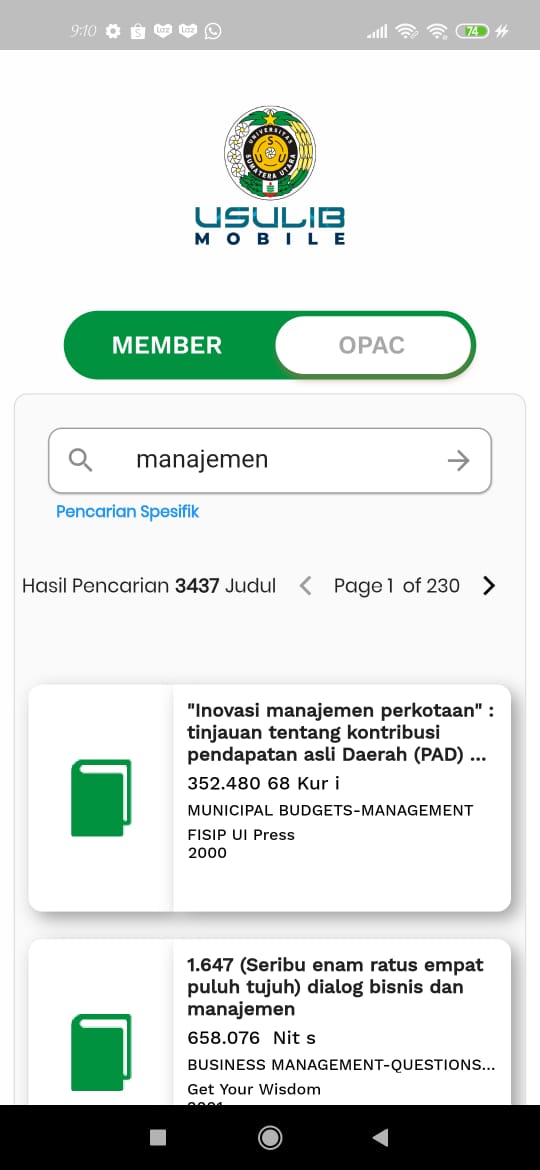
Gambar USU's Lib application for information on books available in the library and online loan extensions
Posters about saving paper use and printing on two sides of a paper are placed in the office space and near the printer, thereby increasing employee attention in paper use. Posters about the use of tumblers, reusable straws, and reusable tote bags for shopping raise awareness of the campus community in reducing plastic use. This is in line with the "USU Zero Waste" program.
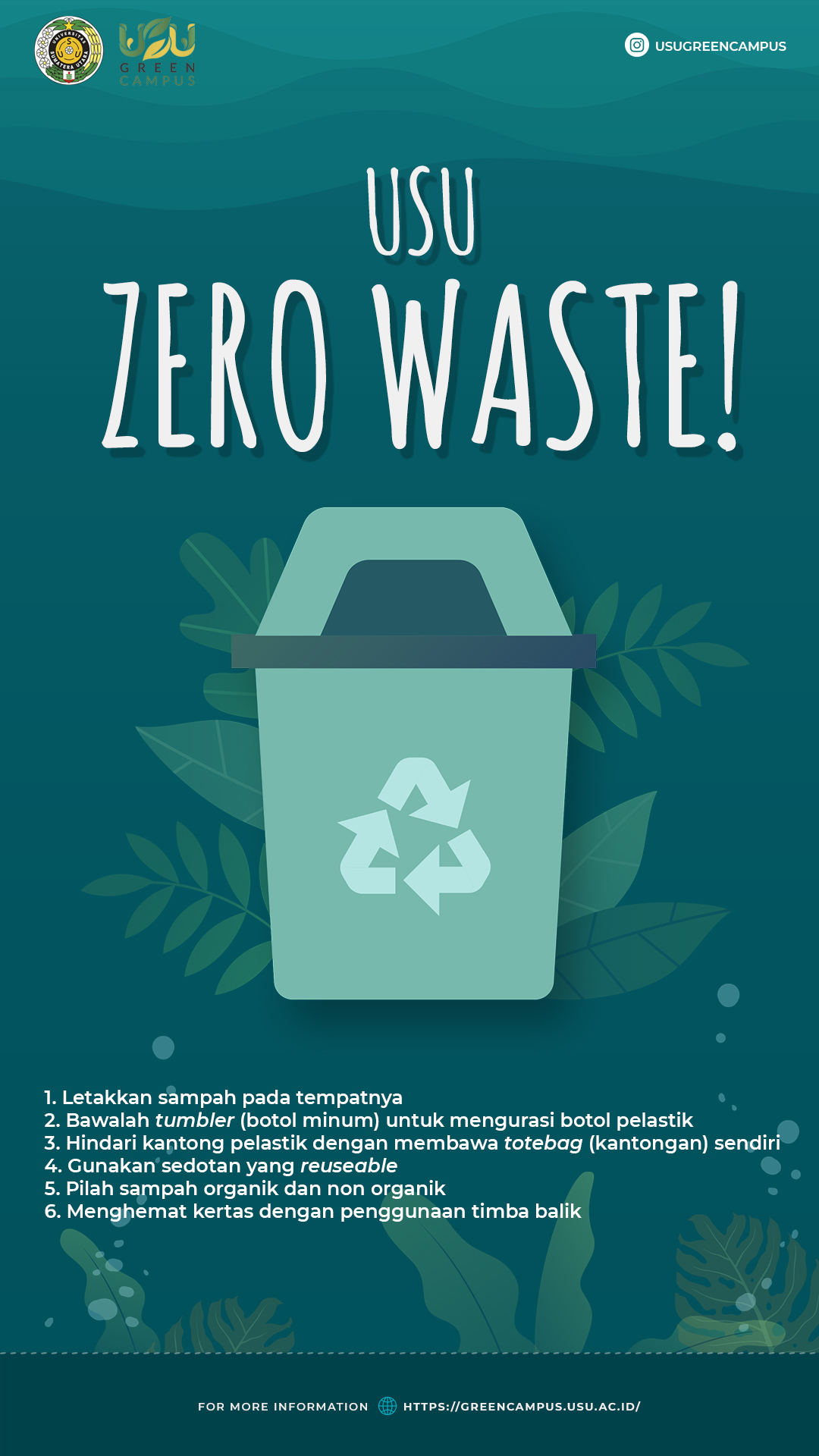
Making tumblers and canvas bags with the USU Green Campus logo is an interesting gimmick and a means of campaigning to save on plastic use.
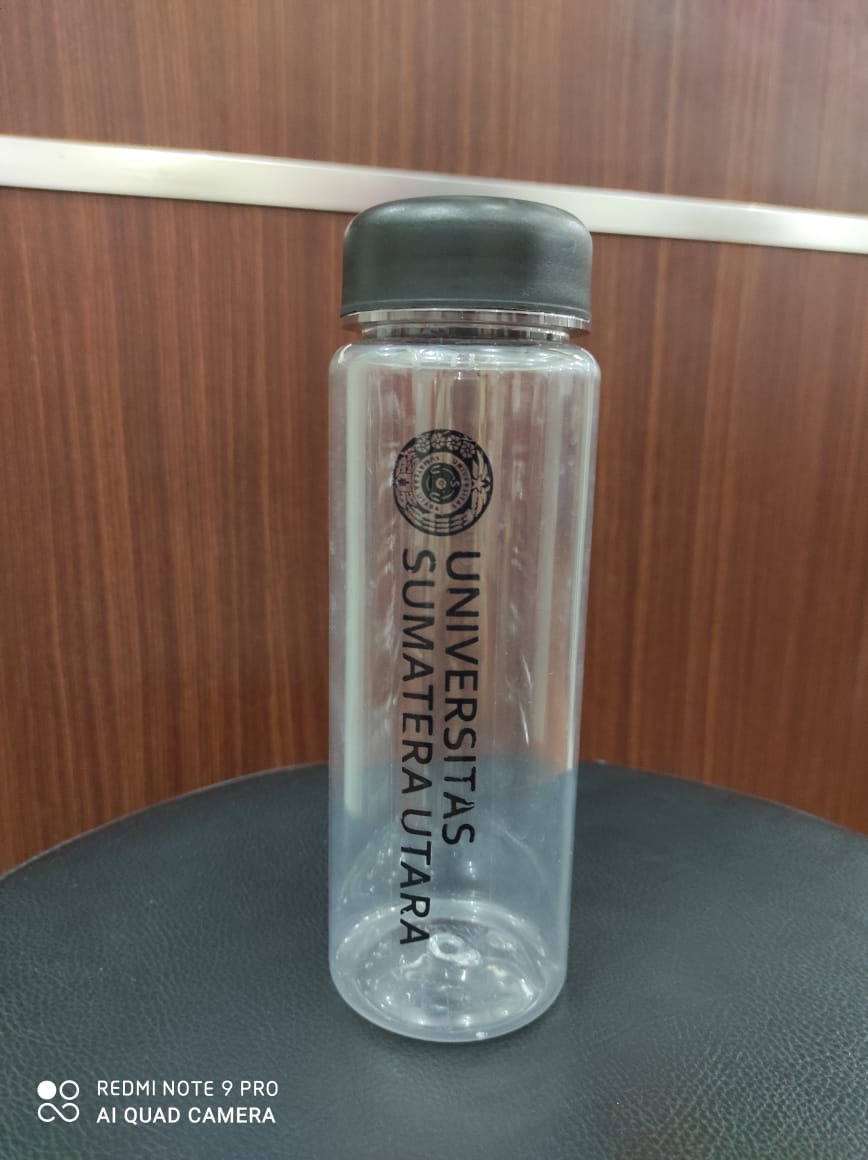
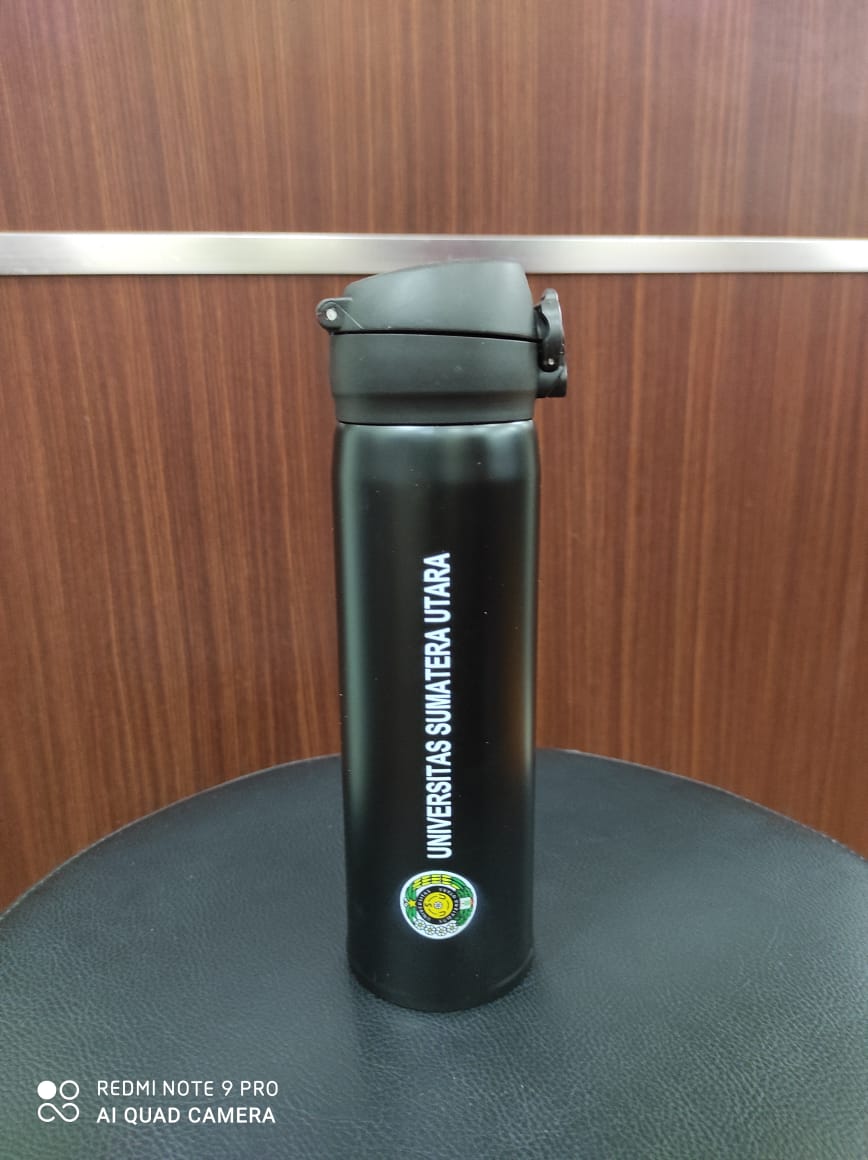
Utilization of information systems in attendance management (Online Presence), staff database (USU SIMSDM), correspondence (SITP), online announcements (SIBOA) greatly reduces the amount of paper usage".
Students use the Academic Portal information system to plan activities per semester and view study results, so there is no need to print out study plans and results.
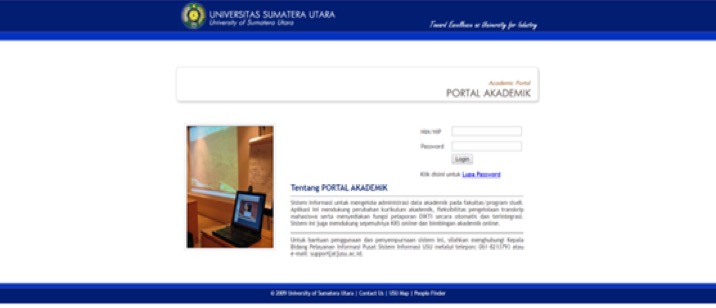
The Academic Information System (SIA) is used by faculties and study programs to manage academic activities in a paperless manner
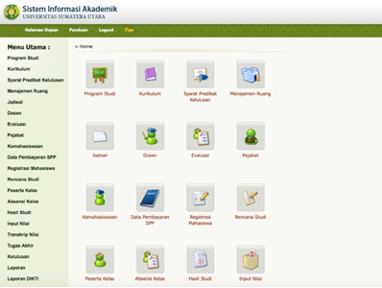
Several faculties have implemented a Computer Based (CBT) exam system for mid and semester exams so that there is no longer a need for question papers and answer sheets.
In managing journals and conferences, USU has utilized the Open Journal System and the Open Conference System. No more submission and review of articles using hardcopy.
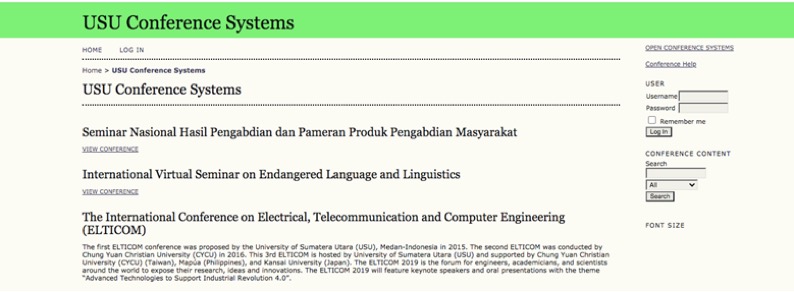
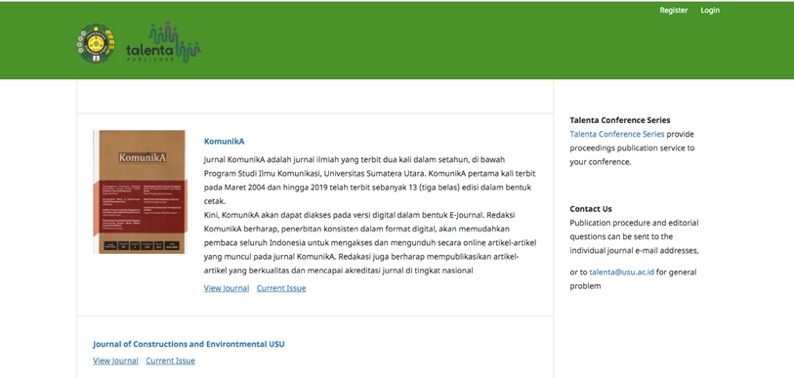
To increase awareness of waste, USU has been actively participating in World Clean-Up Day activities since 2018, which involved students, lecturers, and the community around the campus. These activities are alternately organized by student communities who care about the environment, such as EcoBiomedic (FK USU), GoGreen&Art (FISIP), KOMPAS USU, Rain Forest, and so on.
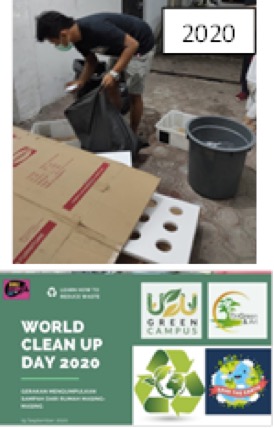
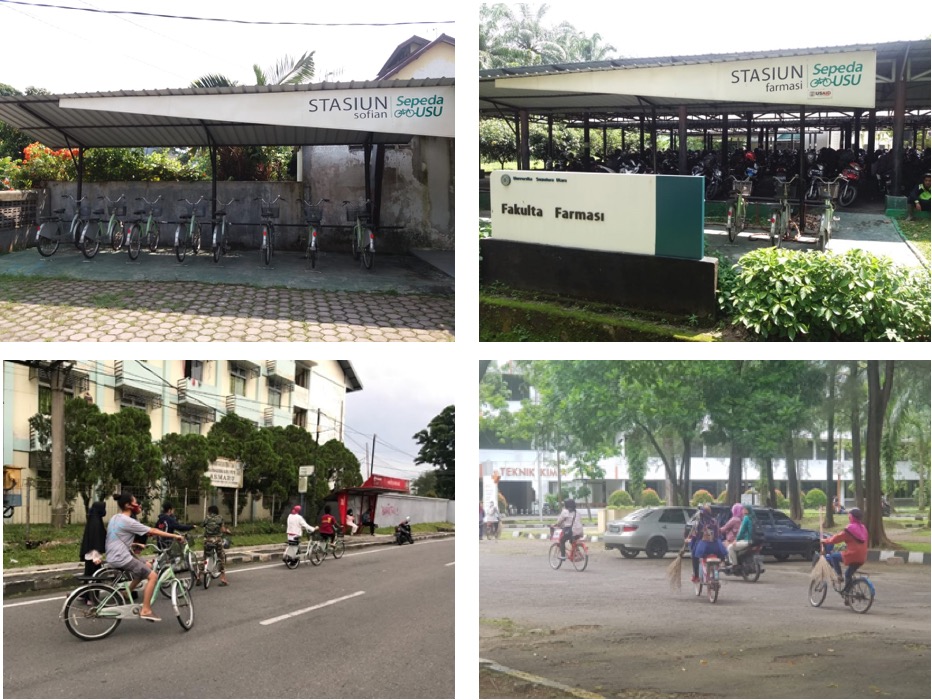
Most of the organic waste is generated by canteens, cafeterias, or kitchen waste from employees' homes in the campus complex. Other sources of organic waste are dry leaves, grass, and wood from the garden. At USU's TPA, there are four compost containers. The USU compost center produces bio activators that can speed up the fermentation process in composting containers. The compost is then used as fertilizer in parks on campus. In 2020, an initiative project to utilize the Black Soldier Fly Maggot to decompose food waste was supported by the USU Community Service Institute. In this project, kitchen waste from houses on campus is collected and fed to Maggot BSF. Maggots are used to feed tilapia fish with the Aquaponic system. The degraded media is then dried and packaged as fertilizer. This project aims to show that organic waste still has economic potential. Another modality for organic waste
developed at USU is the Biogas Composter. This method is also introduced to the community in public service programs. Inorganic Waste Management at the Universitas Sumatra Utara was developed in collaboration with the Department of Hygiene and the Department of the Environment of the City of Medan. Education about waste sorting to students and other campus communities is carried out through lectures during new student admissions and also through educational posters. Waste segregation starts from the trash that has been separated for inorganic waste, where USU's temporary trash can, inorganic waste that can still be recycled, is re-sorted. Then this waste is sold to recycling vendors or to waste banks partner in Medan Selayang District. Another inorganic waste is transported by the Medan city sanitation service to a final disposal site.
B3 (Solid and Liquid) waste from hospitals and laboratories at USU is managed in collaboration with third parties (PT. Sumatra Deli Lestari Indah and PT. Arah Environmental Indonesia). Toxic waste is stored safely in small containers and then managed in a temporary storage area before being routinely collected by the company.
The wastewater treatment plan is located at USU Hospital. Maintenance of the IPAL system is carried out by C.V. Rekayasa Lingkungan C&R.
After the treatment process, the wastewater can be used for purposes other than drinking water, such as watering gardens and vehicle spaces. In the future, there will be recirculation of processed water for use in toilets (toilet flushing).
Under the framework of a collaborative project between USU and JICA (Japan), the "Environmental Education Project for the Improvement of the Water Environment in the Deli River Basin, North Sumatra Province, Shinriyo Cooperation" is installing a sewage treatment unit named "JOHKASOU." This unit can recycle wastewater into clean water, which can then be used as toilet flushing water.



